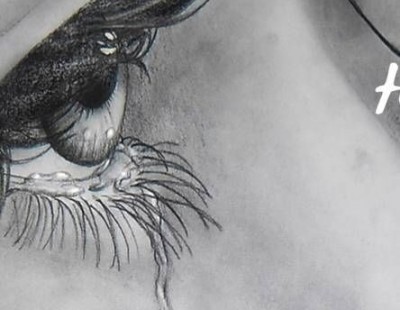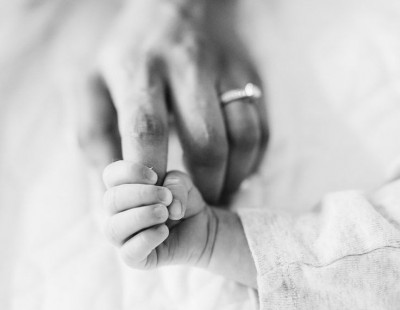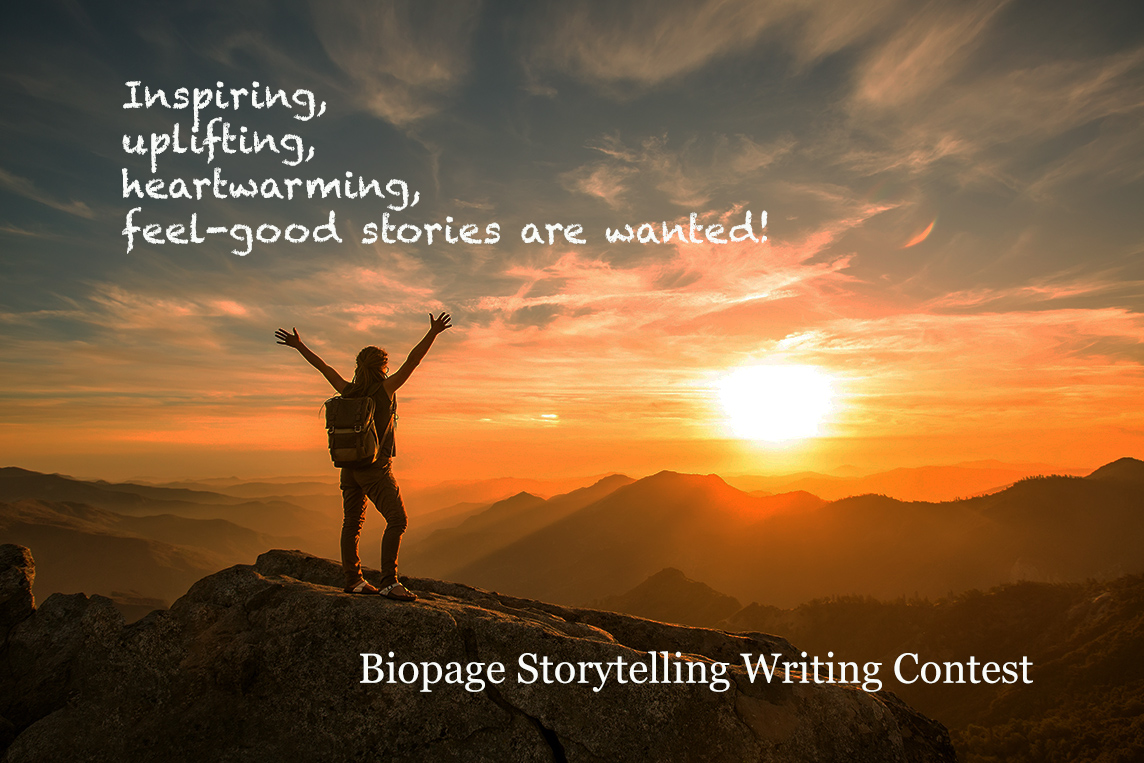-
Usernamemeera.amar
-
Password
Leave password field empty to keep your existing password!
-
Confirm Password


Munira is a student at a federal college. Her educational background in MBBS and creative writing has given her a broad base from which to approach many topics. She especially likes watching Pinterest videos, drawing in her own company and ice cream with chocolate toppings.

The Things We Cannot Say
Jul 24, 2020 5 years agoI push back from the laptop, my fingers trembling when I fumble with the edge of the drawer, pulling it open. I twist the cap off of the medicine bottle, shaking out two pain pills and popping them into my mouth. Another headache, my vision spotty from it. This morning there was a doctor's appointment, one where I laid out my symptoms and the doctor assured me they will only get worse. He gave me a sales pitch on chemo, along with a fresh script for pain meds. The chemo I passed on, but the meds I accepted. I'm breaking. I can see it in the rigid grip of my stance, the clench of jaw, the tremble of my entire frame. I can feel it in the air, the rough pain that emits, and this is so much deeper, so much stronger, than my own mortality. In that news, there had been no emotion. In this, I am a raw current. I don't know when it happened, or how, but grief is a song I am well versed in. I'm dying. It's a grim start to any story, but I think the news should be delivered in the same manner as a ripped band-aid. Short and blunt, a stab that burns for a moment, then is gone, the moment over. My doctor tip-toed around the news, showing me test results and citing blood cell counts, CEA numbers, and an MRI that showed a tumor the size of a small lemon. He drew out what could have been accomplished in two short sentences. You're terminal. You have three months left. I should be sad. I should be emotional, my fingers shaking as they press cell phone buttons and make depressingly bleak phone calls to all of my friends and family. Only, I don't have friends. And my family… I have no family. I have only this countdown, a dark ominous chant of days, sunrises and sunsets before my body gives up and my mind shuts down. It's not really a terrible diagnosis—not for me. I've been waiting four years for something like this to happen, a guillotine to fall, an escape door to appear. I'd be almost cheerful about it, if it weren't for the book. The story. The truth, which I've avoided for the last four years. I step into my office and flip on the light. Moving forward, I reach out, my hand trailing over the corkboard wall, hovering over the tacked up photos, the pages of abandoned ideas, jotted notes of a hundred sleepless nights, sparks of inspiration—some that led nowhere, some that now sit on bookshelves all over the world. My husband made me this board. His hands held the wood frame in place, cut the cork, and nailed the pieces into place. He kept me out of the office all day to do it, my insistence at entering thwarted by the lock, my knocks on the door ignored. I remember sitting back in this same chair, my hands on my belly, and seeing the final product. I had stared up at the blank board and thought of all the stories I would build on it, the words already itching for their place. It had become everything I thought it would. I stop at the page I've read countless times, its paper worn more than the others, the edges not obscured with clippings or neighboring photos. It's the synopsis for a novel. Right now, it's just one paragraph in length, the type of copy that might one day be embossed on the back cover of the book. I've written fifteen novels, but this one terrifies me. I fear that I won't have the right words, the right arc, that I will aim too high, hit too hard, and still not properly affect the reader. I fear that I'll tell everything, and still no one will understand. It's a book I had planned to write decades from now, once my skills had grown, my writing sharpened, talents perfected. It is a book I planned to spend years on, everything else pushed aside, my world closing in on the one thing that mattered, nothing else moving until it was finished, until it was perfect. Now, I don't have decades. I don't have years. I don't have the level of skill. I don't have anything. There is no time for perfection; it doesn't matter. I pull at the tack that holds it in place, and set the page carefully on the center of my clean desk. Three months. The deadline is the tightest I've ever faced. There will be no frantic calls to my agent, no negotiation for more time. Three months to write a story that deserves years. Is it even possible?
We're Not Alone
Jul 24, 2020 5 years agoAt the beginning, people stood on street corners and shouted about the end of the world. Jane remembered watching the man next door fill up his garage with stacks of canned food and bottled water, as if preparing, it now seems, for a disaster much more minor. The grocery stores were soon empty, the shelves sucked clean like chicken bones. The freeways clogged immediately. People heard the news, stay indoors, they said, but they wanted to move. Families piled into minivans and crossed state lines. They scurried in every direction like small animals caught suddenly under a light. But, of course, there was nowhere on earth to go. Twelve hours into the quarantine, a more pressing danger is floating through these fluorescent halls. A fifth nurse goes under. And an old man, admitted for pneumonia, now sleeps with the others in the isolation wing. There are not enough beds for the families trapped in the hospital, so they sleep on the floor in the halls. At this late hour, no one can tell by looking who among them might be sick and who well. Certain small problems are already threatening to grow larger: two toilets have stopped flushing, and the usual shipment of cafeteria food has not arrived—the truck driver too spooked by the news to approach the building. Inside, Jane keeps her mask tight, her hands in double gloves, her psychiatric training leaving her only slightly more prepared than the others. One thought keeps beating in her mind: if this sickness takes her away, her daughter will not remember even one wisp of her days with her mother. It seems suddenly selfish to have brought her into this world alone. She tries to write a note to her, in case— to read when she's older. But she is unable to put down on that page anything more than the biggest, most obvious thing: You were loved.
Losing Hope
Jul 23, 2020 5 years agoIt's easy to mistake a wish for a fact, a hope for a lie, a better world for the one that is. For example, our children: we don't expect we'll ever lose them. And so, when Ben finds his baby girl in her crib, sleeping late into the morning, it is hard for him to believe that anything might be wrong. She looks so much like she always does when she's asleep. Nothing seems amiss, except for this: no matter what Ben does, she will not open her eyes. No tickling of her feet, no brushing of her cheek, no splashing of water on her face will rouse his daughter. No matter how much he has imagined this exact scenario constantly for weeks, all those visions turn out to be useless now, his worst fears proved flimsy by the real experience. This, this is ghastly: a sudden draining of meaning from the world. Later, he will think of all the ways he might have saved her from this: maybe they should have stayed inside all this time, or left town earlier, broken the barricades, anything. But for now, he just kneels down on the floor as if to pray or to beg. “Please,” he says, his hands on her chest like he might still find some magic there. “Please, wake up” There is a reason that time seems to slow down in moments like these, why our chest suddenly feels empty. This heart is breaking. He will cry there alone, till Alice arrives and they reminisce on the moment hope was lost. Some will say that the official response was too slow. But certain procedures are being followed. Lists are being made. Calculations. There is, after all, a mathematics of disease: how one case grows to three or four, and each of those four to four more. A quiet arithmetic, a naming of names, this is how it comes to be that thirteen days after the first girl fell sick a nurse's gloved finger is pressing the doorbell at the house where Alice, Ben and their baby live. Have they heard, the nurse wanted to know, about the sickness going around? A burst of adrenaline came into Ben's blood. She seemed nervous, standing there, the young nurse in green scrubs and fresh gloves. She's holding a clipboard under one arm. She's asking about his baby. “Is she here?” she says. “Your daughter?” “Why?” he says, but the details are rushing into his mind, all those reports he has only half heard. “We're taking every precaution,” the nurse says. “We're monitoring everyone who's had contact with the sick.” She speaks as if reciting the words of a script, newly learned. “But who's sick?” asks Ben. There's a sudden tightness in his throat. The nurse looks away, as if the truth embarrasses her. “No one called you?” she says. She is tugging at the chain of her necklace; a tiny silver cross catches the light. He's been having nightmares about losing the baby. He wakes with a physical sensation, a terrible emptiness in his arms. "It's the milk", says the nurse. "It's the donated milk from the hospital." “My God,” says Ben. They have a freezer full of it, rows and rows of bottles, pumped from the bodies of other women. And a bag full of old bottles that Grace has already drunk. One of the donors, says the nurse. One of them might have been exposed. He will remember, later, the look on Alice's face as she walks down the stairs, that last moment before she knows to be worried. She is holding Grace in her arms, hand under her head. Fear feels different, so much sharper, with a baby. “Has she been feeling all right?” asks the nurse. “Oh my God,” says Annie, bringing her hand to her mouth. “Oh my God” “I need to take her temperature,” says the nurse. Soon the nurse is holding a wand a few inches from Grace's forehead, no contact. It's the same kind of thermometer they used in the hospital in those first few hours of her life when her body was still learning to regulate its own temperature, and her limbs, so accustomed to life underwater, were squirming slowly, like a jellyfish moving in a current. “They said it was sterilized,” says Ben. “I thought the milk was supposed to be sterilized” The nurse's hands are shaking as she holds the thermometer over Grace's head. She is standing as far away as she can. She keeps having to start over. “There was some kind of mistake,” she says. “I'm sorry” Finally the beeping: no fever. A tiny ping of relief. "But someone will be back to do it again in the morning", says the nurse. "They'll have to do it twice a day". In the meantime, they should stop using the milk. They should throw out whatever they have left, and switch to formula. And there is one more thing: “We have to ask that you keep her at home for now,” she says. She is peeling off her gloves. She is already backing away. “And also,” she says, “please don't leave town". He thought, that maybe, the nurse was wrong. But then here he is, surrounded by the sound of his breathing alone, estranged by their loss.












